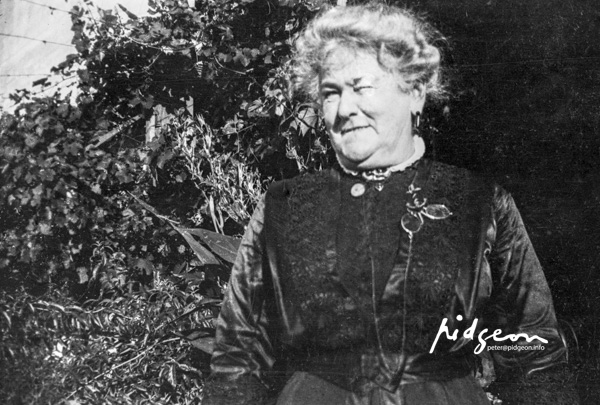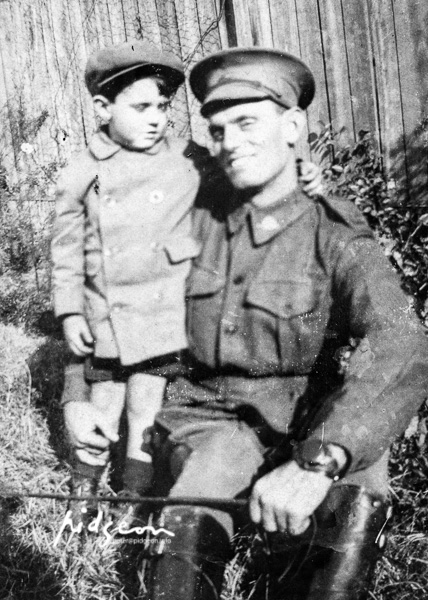
Come to think of it my brother Jack had the makings of a great lover. Great lovers and Jack had this in common, that something or other, they were irresistible to females. Mostly, I suppose to females of Homo Sapiens species, because I do not remember any errant or rubbish behaviour on the part of the lady hippopotami or rhesus femonks when he confronted them at Moore Park Zoo which we used to visit with our grandparents before they turned it over to the boys & girls of Sydney High.
Most important about the old zoo and in the recollections of that august tea drinking safari were the lions mangily skulking over the lack of knacker’s meat. It was practically impossible to throw yourself into their jaws because of the Bessemer steel bars which inhibited such spontaneous gestures. The Moore Park lions never had laissez-faire of the Taronga Park or Perth Zoological Garden cousins, or were, properly descendants, who have the facilities to eat up any Christian in the mood for martyrdom and a paragraph in the chatterbox columns of the daily press.
But at that earliest age I cannot remember whether he had any real charm for all females. Nobody had stuffed him through the bars of the lioness’ cage or tried him on a lady panther. All I remember was him sitting under a palm tree wolfing the sandwiches and lolly-water of which I never got my just share. So, to be quite truthful I really can’t say much about Jack as a lady killer of all species.
Down in the old buggy house the steps had been trodden on and the dust scuffled. In a way this was very upgrading. I had been put to making love in the bran bin and always smelt of chook. For now on we all sat is state in the back of the buggy in the dark and leaking shed. We weren’t niggardly – the neighbours and their girls – all of us sitting up in state, riding darkly nowhere at all, but living in a past grown-up land alive with ghostly liverymen and pale proud trotters.
Somehow Jack’s loves seem to have been sidetracked. It is a habit of mine to get off the beam. But that is at it maybe. Jack’s loves were innocent enough but the grand parents used to worry about him helping the help. When she fed the fowls he was missing. If you ask me he was in the bran bin rising out of the unexpected pollard with a barouche on his tongue.
I was sad when brother took the help out one evening. It must have been every bit of nine o’clock before be returned after having been in God knows how many back lanes. The backdoor and side gate had long since been bolted, screwed down and nailed up against all intruders. Even the broken fence back of the barouche shed had been fastened to. Nine o’clock was no time to tug at the great puller beside the front door which spung off the angry bells into the corridors and kitchen, I only heard about it next day.
But as a latter-day destroyer of domestic help he was the terror of Duxford St.
Now domestic help in those days was available and cheap. It was expendable too. The great problem was not so much a matter of kow-towing to the staff – of bribing them with hot soup and cast-off dresses – as of keeping them moral and careful of the dignity of established righteous family life.
There comes a time in all young men’s lives when they are conscious of the mysterious amalgam of M and F. I was fully conscious of this fruitful synthesis of the opposites by the time I had matured in Paddingtonianisms at the age of eight. Brother never discussed the mysteries with me but I gather that he understood what it all added up to.
We had an old barouche or town-wagon or cabriolet or some family whatnot – down in the back shed at Grandpa’s place. It was a wonderful thing, and although the varnish was a dim grey it had a genuine craquelle finish. It had a high driver’s seat with a footbrake and a sometime silverplated receptacle like a narrow guttered epergne to hold the whip which had long since gone the way of the horses which had not warmed the shafts for many years. Behind the box set (the driver’s) was a sort of miniature pub lounge with the seats surrounding U-like and terminating in the up and down folding steps. This ensemble was preserved under a Puritanical layer of tell-tale dust. That is – until the new help came.
Jack was in disgrace and the help unhelpen. Sad. Because I liked her too. She left next day. We won’t go into Jack’s other loves for he kept them outside the borders.
There was no possibility of any further unhappy family romance in “Trelawny” (Grandpa’s place). Out next useful was a swarthy Amazon with the shoulders of a Strangler Lewis and the bosom of a robin. She had a moustache and beard as vigorous as Archbishop Makarios’ and was as tough as a Cypriot as one could meet in any dark corner of Nicosia. Aunty Bella has picked her out and smugly aware that there would be no hanky-panky between her and brother. I was sure too – I could not foresee the slightest disgrace darkening the now sunlit portals which overlooked the vistas of Rushcutters Bay. I thought that this help a veritable horror – and to all believers in the reasonable workings of natural genetics, she was at that. There would be more chance of winning yourself three lotteries running than envisaging scandal hand in hand with this Frankenstein Aunty Bella had cooked up.
Jack naturally behaved like a gentleman and was highly regarded by the family. But I – being supposedly too young to know what went on, and yet being blessed with an observant eye – was vastly intrigued by the amount of time our help and an equally uncouth tradesman used to spend in the cupboard under the first floor flight of stairs. Having been dutifully drummed into the adage of being seen and not heard, I kept my peace and was not unduly scandalised when I heard that the lady wrestler had taken the count with the tradesmen in the room on the first floor back.
I don’t know how he got in to stay the night- but I do know the lady wrestler left and possibly took the makings of another with her.
After that Aunty Bella did all the work. We had no more trouble.
[W.E. Pidgeon]









